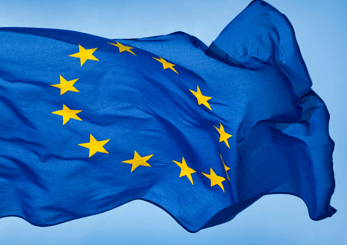EU committed to strengthening Ghana’s prosecution system
 The European Union (EU) says it is committed to strengthening Ghana’s prosecution system to tackle corruption.
The European Union (EU) says it is committed to strengthening Ghana’s prosecution system to tackle corruption.
A statement issued by the EU and copied to the Ghana News Agency on Monday said the Union under its anti-corruption programme, Accountability Rule of Law and Anti-corruption Programme was supporting the Attorney General’s Office of Public Prosecution in organising series of training programmes for Prosecutors throughout the country.
It said the programme on the theme: “Equipping the Prosecutor to fight corruption and related offences from traditional to electronic means,” spanning three weeks at different locations throughout the country.
It noted that the programmes had been lined up with the first taking place at Ada in the Greater Accra Region.
The statement said it would last for one week; adding that successive ones would be held in Kumasi.
It said the opening ceremony in Ada was attended by the Deputy Attorney-General, Mr Joseph Dinkiok Kpemka and representative from the Ministry of Communications among others.
The statement said the training programme was being organised in collaboration with the Ministry of Justice and Attorney General and the National Communications Authority.
It said more than 100 state attorneys/prosecutors were attending the training event.
In an opening remark, Mr Paolo Salvia, the Charge d’ Affaires at the European Union, said the fight against corruption and criminality needed competent and committed prosecutors, working closely with investigators, whose role was vital in modern criminal procedure.
He said: “Prosecutors can and should be the engines of the criminal procedure chain. The development of Prosecution Service is a priority for Ghana as for many other countries.
“Only a dedicated, professional and efficient Prosecution Service can tackle the evil of corruption, which every day develops and transforms its techniques.”
He added that specialisation should be seen as a priority in order to respond better to developing forms of criminality, in particular organised crime and corruption; specialisation in terms of the organisation of public prosecutors, as well as in terms of training and careers.
The statement noted that the training was a first step in EU support to specialisation.
It said recourse to teams of specialists, including multi-disciplinary teams, designed to assist public prosecutors in carrying out their functions should also be developed.
Mr Kpemka stated that “corruption takes many different forms and fighting against it needs a concerted effort from all agencies and services”.
He added that Ghana was amending her legislature to strengthen law enforcement against corruption.
The statement said the courses were organised in the framework of the Accountability, Rule of Law and Anticorruption Programme, ARAP a multi-year programme to support the efforts of reform of the Government of Ghana to fight corruption, strengthening on the one hand the accountability mechanisms and on the other hand the criminalisation and law enforcement system.
The ARAP Team Leader, Mrs Inma Zamora, said there was the need for co-ordination among all interested parties.
She said the achievement of efficient and effective criminal justice would greatly benefit from a stronger co-ordination among agencies in a broader framework of crime control and criminal justice policies.
“Prosecutors cannot do the work on their own; they also need to link well to investigative agencies, that is why Police and EOCO attend the training. Different abuses of public position for private gain; corruption, takes many forms,” she stated.
Source: GNA
